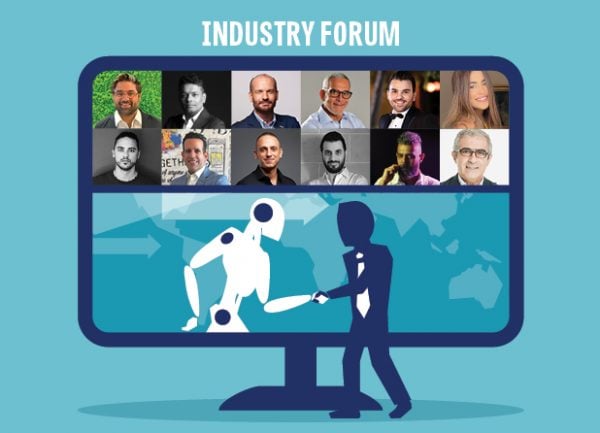
 Mazen Jawad
Mazen Jawad
President, Horizon Holdings
Maybe
We see many brands that have started their digital transformation, at times partially starting with specific business processes or services, at times gradually, and therefore it is not always the ideal approach. First, the digital transformation has to be successful from the inside out, where the organisation needs to have the right digitally-savvy leader in place with the appropriate plan, strategy, culture, alignment and tools to implement. Second, any digital transformation has to be customer-centric, leverage effective digital technologies that people would like to interact with and ideally be implemented holistically, taking into consideration the entire organisation, or all parts that face the customer interaction. We’ve seen brands implementing successful digital transformations – especially within the financial sector, lately in the media sector and surely more to come. It is a never-finished process.
Are you saying the right thing to the right people in the right place? Join us at the next Campaign Online Briefing: Cross-Platform Marketing – How to do It Right. Our experts will help you put together a content strategy that works across all the right media.
 Jérôme Mouthon
Jérôme Mouthon
President MENA, Teads.tv
Yes
Most brands are already beyond the concept of ‘digital transformation’, as they understand that if they are not digital they will struggle to exist. This is why, every day, we are working to support our partners on understanding how to adopt the best technological solutions able to keep up with market changes, the latest example of which is the depreciation of third-party cookies that will come to an end in 2023. Teads recently released a ‘cookie-less translator’, a tool that we released in exclusive partnership with OMG to enable programmatic media buyers to discover actionable insights for clients and build custom audiences that do not require third-party cookies for activation. It specifically helps brands transition to the privacy-focused era by building predictive audiences seamlessly and translating pre-defined cookie-based audiences, including advertiser first-party data, to new segments that do not rely on cookie-based technologies.
 Shyam Sunder
Shyam Sunder
CMO, eyewa
Maybe
Yes, as far as using the right tools for targeting, retargeting and analytics are concerned. No from an overall digital transformation strategy perspective. Too many brands, especially those in pure-play e-commerce, tech and start-ups are limiting their efforts to bottom-of-funnel objectives. Almost all their strategies are focused on the in-market audience. This is hurting their business and slowing their growth. Top-of-funnel needs of the brand are being ignored due to ignorance or pressure to demonstrate quick wins or just sheer lack of funds.
An excellent paper published by WARC on this topic of Brand Building in the Age of Digital Business says that, “brand-building can be considered the creation of future demand. Future demand is created when new customers become aware of a brand and add it to their consideration set. At this point, they become more likely to respond to performance marketing efforts. Before this point, converting them can be difficult and expensive.”
It’s time for the CEOs to be aware of the need for consistent demand generation and re-start their marketing strategies to ensure full-funnel marketing
for growth.
 Karma Bou Saab
Karma Bou Saab
Senior media planner, Dentsu X
Yes
The pandemic, work-from-home and markets’ fast-growing digital needs have accelerated regional brands to think and act more digital. To ensure continuity, listening to consumers’ needs and fulfilling their expectations is crucial. The current transformation is led by digital-centric customers across industries. For that reason, brands are shifting more towards e-commerce, leveraging on first-party consumer data, using AR, operating chatbots and building more on CRM systems to reach potential and loyal users in a more relevant and personalised manner. As a result, the improvement of digital infrastructure is leading to better operational efficiencies and long-term capabilities. The more effective this transformational mindset continues to be, the more it will keep growing across practices and regions.
 Rony Skaff
Rony Skaff
Digital account director, TBWA\RAAD
No
Digital transformation is a disruptive technology which transforms the existing business model and redefines the ecosystem that sits at the core of the strategy and operation of an organisation. But brands cannot achieve digital transformation on their own; they need the support of their communities and governments.
Digital transformation is still not yet very well implemented across all industries in the region and varies from one brand and industry to another. The main reason is that most businesses think of it as the adoption of one technology, as the solution to one problem that they have, instead of placing it at the heart of their strategy.
 Maxime Menant
Maxime Menant
Brand strategist, TikTok For Business
Yes
People have outgrown brands’ ‘rush to innovation’, and that’s because they were tired of just being a pretext for it. Brands now understand that digital transformation is not about the creation of endless digital shelves or using AI to facilitate sterile customer experiences. Today, brands are focusing on leveraging tools and partners that bring their customers closer to them by expanding and solidifying their relationship through joyful discovery and meaningful co-creation. The ultimate strategy is not to think of the customer as the end benefiter but as the driver of your digital transformation.
 Abdallah Safieddine
Abdallah Safieddine
Managing director, Mindshare UAE
Yes
But the level of adoption of tools and strategies differs across industries. At Mindshare, we have seen CPG clients implementing organisational and process changes to drive digital transformation, while on the other spectrum our performance-driven clients are more advanced when it comes to data and technology adoption.
Although Covid-19 accelerated digital transformation, we are still scratching the surface. The upcoming couple of years will witness an even shorter time between innovation and adoption. This will drive brands in the region to expand their toolsets and harness platforms and their cloud services to grow at speed. Brands who don’t embed it in their culture and way of working are the ones that are going to be left behind.
 Rabih El-Khoury
Rabih El-Khoury
Head of agency development – MENA, Twitter
Maybe
The intent and the investment to deploy tools and strategies are surely on the rise, if not already underway – yet execution, central to any strategy, still lags. Ultimately digital transformation is about (revolutionary) implementation, not just design. Across MENA, a large number of clients continue to stick to their comfort zone (from playbooks to KPIs), and seek insights but don’t leverage them, and above all suffer from present-moment bias. We’ve come a long way and the do-or-die situation brought on by 2020 surely accelerated the adoption of transformation programmes, which is all very promising.
 Yves-Michel Gabay
Yves-Michel Gabay
Managing director, Gamned MEA
No
When brands consider digital transformation, they are most often talking about digital marketing. But digital transformation is greater than the marketing field. Thus, brands should start by doing a digital capabilities assessment, using models developed by consultancy firms and website analysts. In this way, they will know where the strong and weak points within their organisations are and what they need to strengthen before developing the right strategy.
This is because there is no point in generating accurate leads at the best cost when your sales department is unable to follow up with the right tracking tools, or because your e-commerce website is not able to handle all the demand because there is a glitch somewhere in your website conversion pathway.
 Karim Masri
Karim Masri
Digital director, Magna KSA
No
Some brands have tested the waters on digital transformation and generated effective business results. Others progress more aggressively toward transformation, without necessarily scaling initiatives at optimal levels due to variable factors. The latter remains on the sidelines, contemplating their action plans in the face of modern digital challenges, such as convincing major decision-makers to go all-in on digital transformation tools. Moreover, digital experts may face limitations in upscaling the internal digital and analytics know-how of their companies. This lack of knowledge can hinder achievements of the right partnerships and consultations.
 Brendan Walsh
Brendan Walsh
Regional markets head of strategy, DMS (Digital Media Services)
No
The region has developed a pattern of ‘leapfrog’ technology adoption, which can act as a double-edged sword. A heavy reliance on intender signals and customer acquisition has contributed to a fleeting brand loyalty movement, associated with irrelevant and inconsistent brand storytelling. Investing in your customer’s content experience is now more important than ever, with users having more control over what they see.
Achieving a balanced approach to customer experience is where art and science meet. From activating relevant audience data to drive better experiences in a suitable context, it is possible to nurture lasting relationships that drive a long-term return for brands.
 Sachin Mendonca
Sachin Mendonca
Regional strategy director, VMLY&R Commerce
Maybe
Any brand worth its salt knows the power that digital can play in accelerating growth. But we’ve blown past impressions and engagement. Today digital is a powerful tool to drive your brand’s commerce agenda.
This level of digital transformation must be embedded within the culture and across the ecosystem. Sadly, most brands are under the impression that this can be achieved by hiring a person or two, and the rest… Inshallah! It’s simply not going to cut it. Ask yourself if your current digital transformation is on the ‘Inshallah’ spectrum and be honest about your answer.









